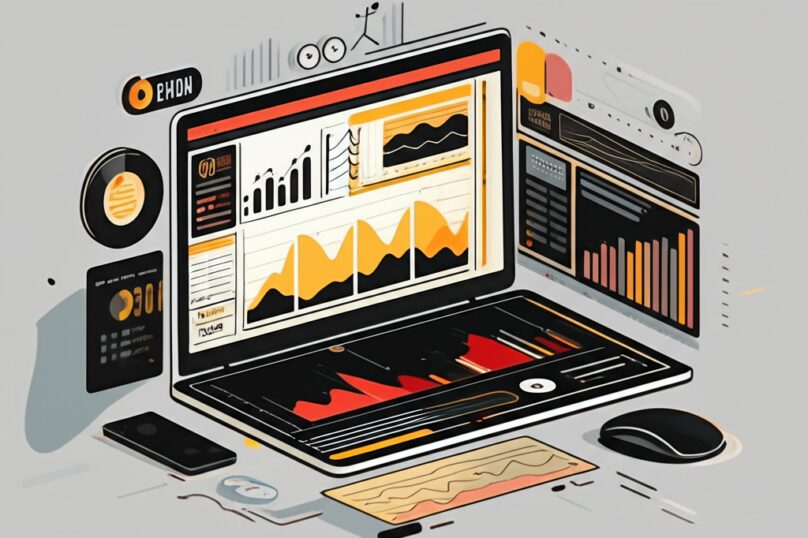Effective ways to improve Data Analytics & Business Intelligence

Hello Business Leaders and Innovators!
In today’s fast-moving world, making smart choices is super important for your business to grow and succeed. Think of it like playing a game where you need all the right information to win. This is where Data Analytics and Business Intelligence (BI) come in. Simply put, Data Analytics is about looking at numbers and facts to find hidden clues, and Business Intelligence is about using those clues to make better business plans.
We’ve seen many businesses, especially right here in Tamil Nadu, transform by using these tools. Let’s explore some easy and effective ways you can also improve how you use data to make your business shine!
1. Start with Clear Questions – Know What You Want to Find Out!
Imagine you have a big pile of puzzle pieces. If you don’t know what picture you’re trying to build, those pieces are just a mess. Similarly, with data, you need to know what questions you want answers to.
- Practical Tip: Before you even look at data, write down 3-5 big questions about your business.
Example from Tamil Nadu: Let’s say “Thangam Textiles” in Chennai wanted to understand why their silk saree sales were dropping during the festival season. Their question was clear: “Why are our silk saree sales lower this festival compared to last year?” By asking this, they could then look at specific data like customer footfall, popular designs, pricing, and even local events.
2. Collect Good Data – Quality Over Quantity!
Your analysis is only as good as the data you collect. If your data has mistakes or is incomplete, your insights will be wrong. Think of it like cooking: if you use rotten ingredients, the dish won’t taste good.
- Practical Tip: Set up simple ways to collect data accurately. Train your team to enter information correctly every single time.
Example from Tamil Nadu: “Annam Cafe,” a popular restaurant chain in Madurai, faced issues with tracking their most popular dishes. Earlier, their staff would just note down orders on paper. They then introduced a simple digital ordering system where every item sold was recorded accurately. This helped them know exactly which dishes were best-sellers and which needed a push, reducing food waste and improving profits.
3. Use the Right Tools (Simply) – Tools That Help You See Clearly!
You don’t need very fancy or super expensive software to start. Even simple tools can help you organize and understand your data better. The right tool helps you turn numbers into easy-to-understand pictures, like charts and graphs.
- Practical Tip: Start with tools you or your team are comfortable with, like Microsoft Excel or Google Sheets. As your needs grow, you can explore more advanced options.
Example from Tamil Nadu: “Ganesh Groceries,” a well-known local store in Coimbatore, wanted to track their daily sales. Instead of complex software, their owner, Mr. Kumar, started using a simple Excel sheet. He recorded daily sales of different items. Within a month, he could easily see which items were selling fast (like “Aachi Masala” packets) and which were slow, helping him manage his stock much better.
4. Understand Your Customers Better – Data Tells Their Story!
Your customers are the heart of your business. Data helps you listen to them, even when they don’t speak. It can tell you what they like, what they don’t like, and what they might buy next.
- Practical Tip: Look at data like purchase history, website visits, and feedback forms.
Example from Tamil Nadu: “Kalai Crafts,” an online store selling traditional South Indian handicrafts, used data to understand their buyers. They noticed that customers from specific districts in Tamil Nadu often bought unique items like Tanjore paintings, while customers from other states preferred Kanchipuram silk products. This insight helped them tailor their online ads and product recommendations perfectly, leading to more sales.
5. Make Decisions Faster – Act on What You Learn!
The biggest benefit of good data analytics is that it helps you make quick and smart decisions. When you have clear information, you don’t have to guess. You can act with confidence.
- Practical Tip: Hold regular meetings (even short ones) to discuss what the data is telling you and decide on next steps.
Example from Tamil Nadu: “Bharathi Logistics,” a transport company based in Tiruppur, used real-time GPS data from their trucks. When floods affected a major highway, their data analytics system immediately showed them alternative routes that were safe. They could reroute their trucks quickly, delivering goods on time and avoiding losses, thanks to fast data-driven decisions.
6. Keep Learning and Improving – It’s a Journey, Not a Destination!
Data analytics and BI are not a one-time thing. It’s an ongoing process. As your business changes and the market shifts, so too will the questions you ask and the data you need. Keep learning, keep exploring, and keep refining your process.
- Practical Tip: Regularly review your data collection methods and the questions you are asking. Look for new patterns and trends.
Example from Tamil Nadu: “Vidya Schools,” a chain of educational institutions in Salem, regularly analyzed student performance data. They noticed a trend that students who participated in certain extra-curricular activities performed better in academics. Based on this, they revised their curriculum to include more such activities, constantly improving the learning experience for their students.
By focusing on these simple yet powerful ways, your business can start making much smarter choices. It’s not just about big companies with huge budgets; even small and medium businesses in Tamil Nadu can benefit immensely. Start today, and watch your business transform!
